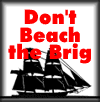|
||||||||||
|
CMHS Home
PPCLI in WW1
Activities 
|
"Play the battalion into France and back."On August 12, 1914, while the regiment was forming up in Ottawa, thier numbers were increased with the unsolicited arrival of Pipe-Major John Coville and twelve men of the Edmonton Caledonian Pipe Band. Some of whom may have been police officers with the Edmonton Police Service. They had been clothed by the St.Andrews Society and were wearing full highland dress with the Hunting Stewart tarten, when they announced their intent on providing the regiment with proper martial airs...to "play the battalion into France and back." They were taken on strength as stretcher-bearers, but served primarily as pipers. On Sunday 23 August the Regiment held a church parade at Lansdowne Park. They were expecting to leave for overseas before the end of the week. The band of the Governor General's Foot Guards played 'O God Our Help in Ages Past', 'Fight the Good Fight', and 'Onward Christian Soldiers'. A large crowd had gathered, even when no announcement was made. Princess Patricia presented the Regiment with a colour with which to mark the headquarters of the Battalion in the field. It was a moving moment. Patriotism and a sense of dedication to a cause were deeply felt. As the presentation ended, Farquhar moved the Battalion into a large exhibition building where it was to be inspected by the Duke of Connaught, the Princess's father. As they marched off, the pipe band played 'Blue Bonnets Over the Border'. The "official" duties of the bandsmen were treacherous; unarmed pipers playing were the first over the top, as they did in the leading wave at Vimy Ridge, Easter Monday, 1917, and later, at the conclusion of the battle, the men were sent, again unarmed, into no-man's land to retrieve the dead and wounded. The pipers found themselves at times acting as runners, bringing up ammunition and ration carriers. They were also used as transport individuals on occasions. There were many instances where they were found with their companies, playing them into action. Many pipers were decorated for their valour. Pipe Major John Colville and Pipe Sergeant Henry Laing were mentioned in dispatches. Piper/Sergeant John MacDonald, Piper Jock Robertson and Bass Drummer (Tambour) William Miller were awarded the Distinguished Conduct Medal. Sergeant John Ritchie was awarded the Meritorious Service Medal. They were immigrants to Canada, from towns and villages in Scotland and fluent in Gaelic. At some point during the war, it was discovered that the enemy was intercepting communications between PPCLI Headquarters and the front lines. It was decided that the linguistic talents of the men should be taken advantage of and orders were given that any further communications would be conducted in Gaelic. With bandsmen at Headquarters and on the front lines, the order was easily followed. Prior to demobilization in the spring of 1919, the men played at the wedding of the regiment's Colonel-in-Chief, Princess Patricia. It was to be one of the final performances. At demobilization, the men returned to their civilian lives and the band ceased to exist until 1959 when members of the Edmonton Police Service expressed an interest in forming a band. On November 9, 1961, the Edmonton Police Service Pipes and Drums became the official band of the Edmonton Police Service. The band was invited to play at the PPCLI Beat the Retreat service in 1964 resurrecting the wartime relationship. The band was then asked to play at the Regimental Trooping of the colours in 1967 celebrating the 100th anniversary of Canada's Confederation. On February 4, 1972, the Pipes and Drums of the Edmonton Police Service was authorized to wear the PPCLI cap badge and have worn it since with pride on their sporrans. |
|||||||||


